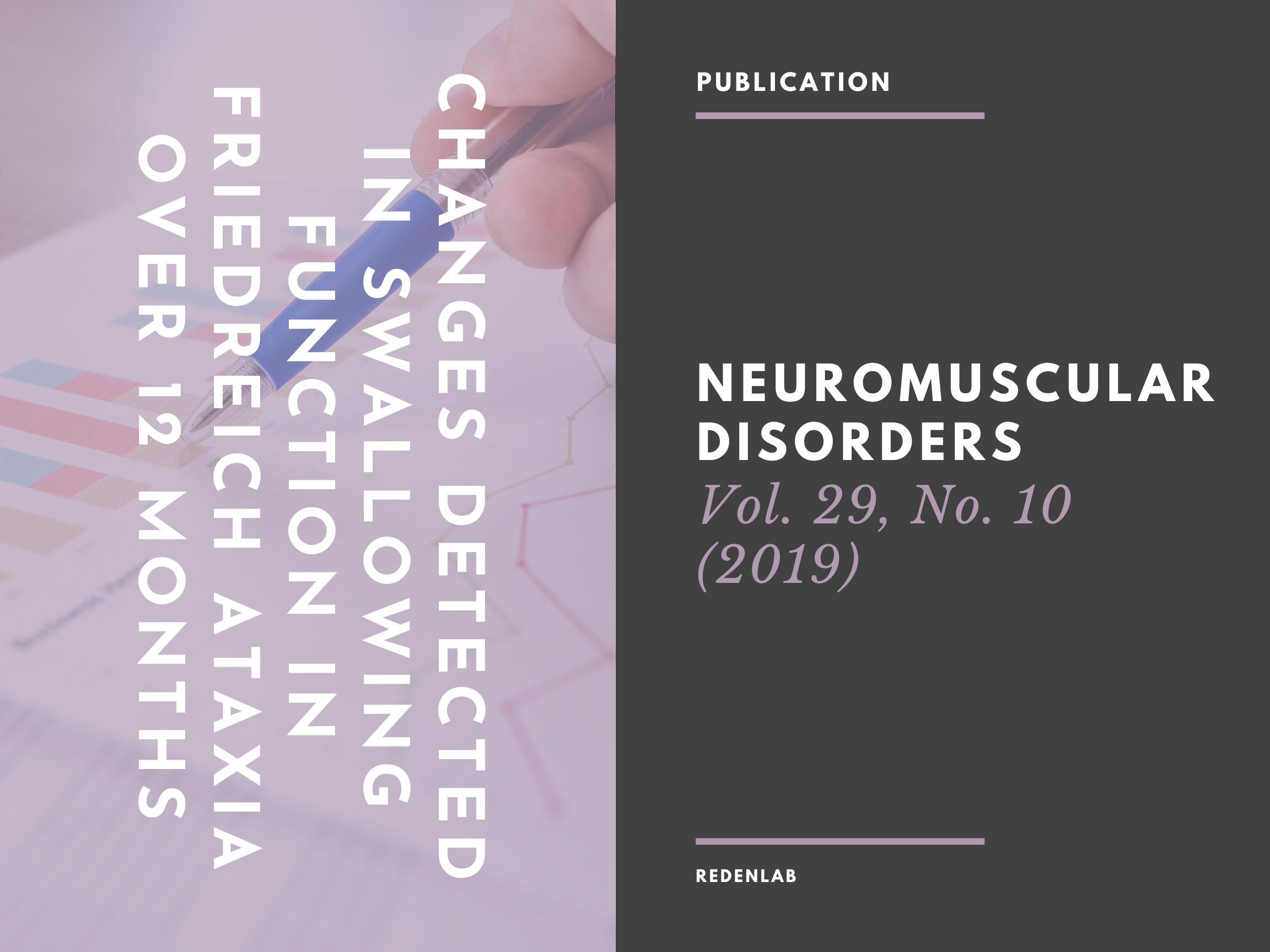Changes detected in swallowing function in Friedreich ataxia over 12 months

Friedreich ataxia (FRDA) is a multisystem neurodegenerative disorder and the most common hereditary ataxia. Dysphagia (swallowing impairment) is present in 98% of individuals with FRDA and is characterized by lingual and pharyngeal dysfunction (manifesting in impaired bolus preparation and transfer, and post-swallow residue in the mouth and pharynx), delayed swallow initiation, and entry of material into the airway (penetration/aspiration). Dysphagia severity correlates with disease severity and duration however no longitudinal studies describe changes in function in FRDA. The aim of this study was to investigate the progression of dysphagia in FRDA over one year. Fifty-nine individuals with FRDA and confirmed dysphagia were recruited and 23 of them underwent a second assessment 12 months later. Assessments of swallowing related quality of life (Swal-QOL), oral motor function (Frenchay Dysarthria Assessment 2nd Ed [FDA-2]) and functional swallowing via videofluoroscopy (VFSS) were conducted. Trials of thin liquid, puree and biscuit were interpreted using the Bethlehem Assessment Scale (BAS) and the Penetration-Aspiration Scale (PAS) by two blinded raters. Data from the VFSS revealed a decline in tongue function, pharyngeal clearance and cricopharyngeal function on solid food. However, severity of penetration/aspiration did not increase. Swallowing-related quality of life and oral-motor function remained stable. A decline in function was observed at three anatomical sites considered important for safe and effective swallowing (tongue, pharyngeal, cricopharyngeal). However, these deficits did not translate into any meaningful functional decline in swallowing related health over 12 months for individuals with FRDA.
Click here for more details.
